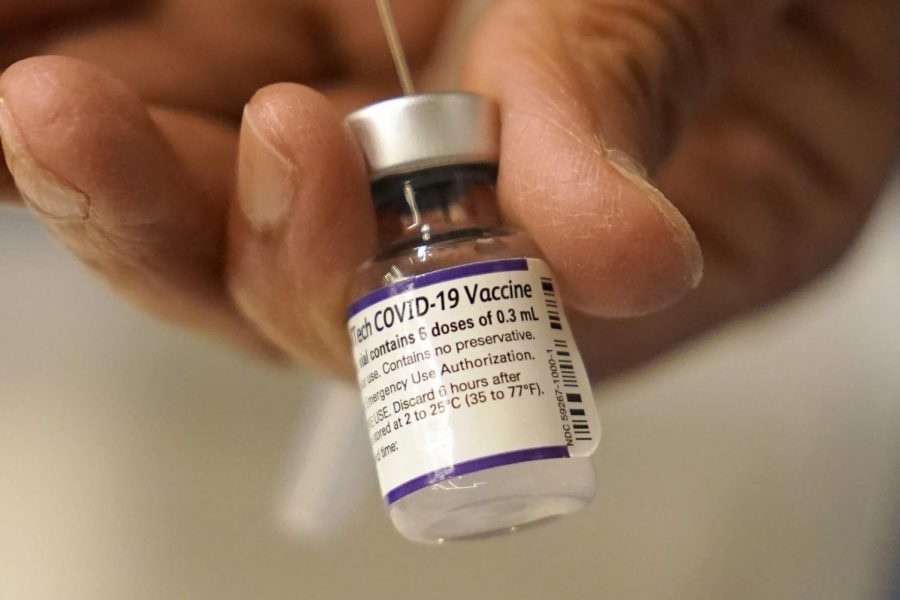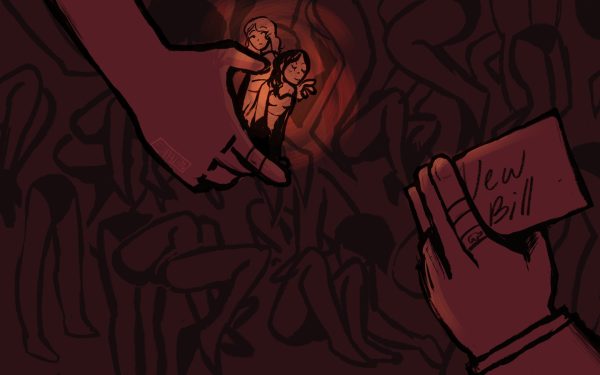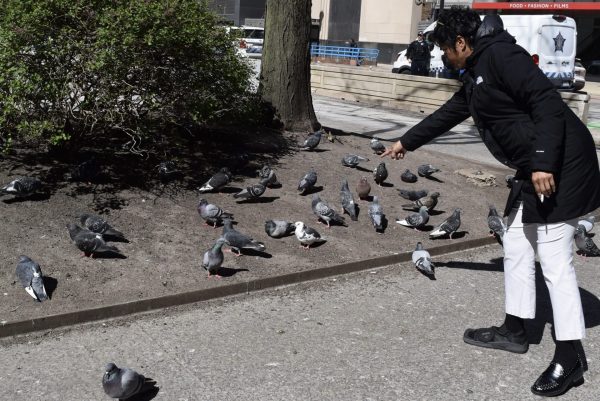Omicron: What to know, how to stay safe this holiday season and beyond
Dr. Manjul Shukla transfers Pfizer COVID-19 vaccine into a syringe, Thursday, Dec. 2, 2021, at a mobile vaccination clinic in Worcester, Mass. Pfizer said Wednesday, Dec. 8, 2021, that a booster dose of its COVID-19 vaccine may protect against the new omicron variant even though the initial two doses appear significantly less effective.
Since Nov. 26, when the World Health Organization first announced their concern regarding the coronavirus Omicron variant, it has spread to over 60 countries, reached 30 U.S. states, surpassed the Delta variant as South Africa’s most dominant strain and sparked a new wave of worries from health experts and common folk alike.
All just weeks away from both Christmas and New Year’s Eve – both of which traditionally bring mass superspreader events.
While much remains unknown about the growing Omicron variant, we do know what makes it stand out from previous variants: its spike protein.
“The spike protein is what binds to human cells,” said Paige Larkin, director of molecular microbiology at NorthShore University Health System. “It’s what actually allows it to be effective and allows it to replicate. So, changes in the spike protein increases the ability of SARS-CoV-2 to hide in the immune system. In this case, the fact that there’s over 30 mutations in the spike protein alone makes Omicron pretty unique and automatically flagged it for something to watch.”
Preliminary studies suggest the mutations present in Omicron may increase the variant’s ability to cause reinfection, bypass the safeguards of full vaccination and may spread more easily than pre-existing variants. Still, these studies are all in early stages and further research is needed to ensure their accuracy.
“It’s difficult to tell, just looking at how many people are infected, how infectious this is,” Larkin said. “There have to be more thorough studies done to show that it’s more transmissible, and not that we’re giving it more opportunities to be transmitted.”
Out of an abundance of caution, DePaul has asked faculty to move courses to remote instruction for the first two weeks of winter quarter – Monday, Jan. 3 to Saturday, Jan. 15 – due to Covid-19 concerns, according to an email sent by DePaul Provost Salma Ghanem. In-person classes will resume on Tuesday, Jan. 18, following the observance of Martin Luther King Jr. Day, per the email.
All DePaul residence halls will reopen Sunday, Jan. 2, although the email notes that students living on-campus may be expected to show proof of a negative Covid-19 test after returning from winter break.
Early observations also suggest symptoms may be less severe in Omicron than in other variants.
Sasha Gutfraind, biostatistician and adjunct professor at the University of Illinois Chicago, likens the current lack of definitive information to watching a poker tournament.
“How do you tell if one player is better than the other?” Gutfraind said. “Essentially, you need to see a lot of games. It’s like a new player starting to play poker: he seems to be doing better than other players, but we don’t have enough data on him. We need to see enough cases.”
As the Delta variant’s hefty toll on the U.S. beginning earlier this year persists, health experts are split on how Omicron’s rise might differ.
Noting social and seasonal differences, Larkin fears Omicron’s impact may be even worse than Delta’s.
“When Delta arrived, we were in a better place where infection rates were already low,” Larkin said. “By the time Delta got here, we were already outdoors; we set ourselves up to prevent transmission, in a way, or reduce it. We still saw a spike. But now we’re mixing it with all the holidays, getting together, lack of precautions, and then honestly, people burnt out.”
Larkin adds that the concurrent flu season adds new concerns as well.
“We’re now dealing with multiple respiratory viruses that are potentially fatal co-circulating,” Larkin said.
Despite these obstacles, Gutfraind remains optimistic, citing the development of healthcare solutions.
“We have much more vaccines now and a much more vaccinated population,” Gutfraind said. “There’s a lot more vigilance. Antivirals have improved for Covid. Doctors are more knowledgeable about keeping people alive. On the flipside, this variant has a lot of new mutations and we are in a situation where there is public resistance to new lockdowns and new measures. So, the battleground is not entirely in favor of humanity, but I think that overall, our odds are better this time around.”
As the spread of Delta and the rise of Omicron continues, the holiday season looms. With it comes widespread travel and family gatherings – events that could potentially compound an already less-than-optimal pandemic.
While necessary precautions will vary between families and locations, Larkin recommends a few precautions in order to keep festivities as safe as possible.
“Obviously, if you can drive, it’s safer than flying,” Larkin said. “Everyone being vaccinated who’s eligible is big. With any family gathering, testing is important. Just note that a negative test doesn’t mean you don’t have Covid; it just may be too early to tell. So, if you are seeing vulnerable relatives, the recommendation that has held throughout the pandemic is isolate and quarantine before seeing them. Wear a mask. Do holidays outdoors if you can. Each family has to identify the risk – if they’re vaccinated, if there’s any highly vulnerable family members or those too young to be vaccinated – and has to have those conversations.”
While the Omicron variant has quickly taken the world by storm, not everyone is surprised about its spread. Mary Jo Ondrechen, professor of chemistry and biology at Northeastern University, stresses that Omicron is not the first coronavirus variant of concern, and almost certainly won’t be the last.
“We need to be cautious, but this is not unexpected,” Ondrechen said. “I think that just the same way there’s a new flu shot every year, there are going to be new coronavirus shots down the road. Until we can get the world vaccinated, there are going to be more variants, and the stronger variant will always dominate.”
Ultimately though, with enough public resolve, Ondrechen believes a post-pandemic future is possible.
“I think we can conquer this disease,” Ondrechen said. “We can go back to a more normal life where we don’t worry so much about this disease. We can do it. The question is, do the people have the will to do it?”












